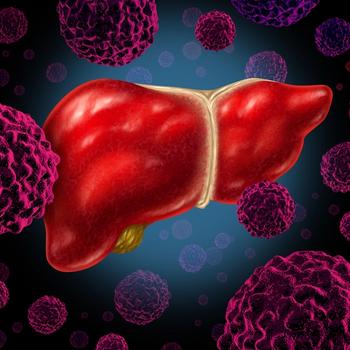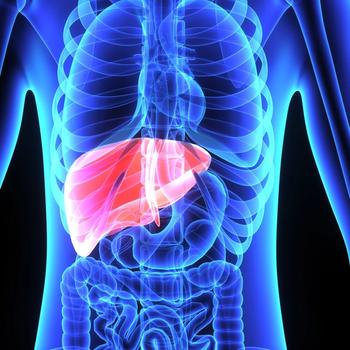
Patients with pancreatic cancer who underwent stereotactic body radiation tended to have fewer side effects and treatment sessions compared to those who had intensity-modulated radiation therapy.

Patients with pancreatic cancer who underwent stereotactic body radiation tended to have fewer side effects and treatment sessions compared to those who had intensity-modulated radiation therapy.

Patients who underwent minimally invasive treatment tended to have better quality-of-life outcomes than those who had a full esophagus removal, though there were risk factors for long-term outcomes that should be considered.

Patients with advanced HCC who progressed after treatment with immunotherapy may have a survival benefit when treated with second-line Lenvima.

Patients with gastric cancer who quit smoking and/or drinking after undergoing a gastrectomy tended to have a decreased risk of depression, research showed.

Zolbetuximab plus mFOLFOX6 lengthened the time to progression for patients with CLDN18.2-positive, HER2-negative locally advanced unresectable or metastatic gastric/gastroesophageal junction (GEJ) adenocarcinoma.

Patients with HER2-low gastric cancer tended to have distinct characteristics compared to those with HER2-negative or -positive disease, warranting more research into this group, research found.

An expert from Memorial Sloan Kettering Cancer Center in New York discusses the promising findings from a study that analyzed tremelimumab plus Imfinzi for unresectable hepatocellular carcinoma, and outlines side effects patients should discuss with their doctor.

Single-agent adagrasib was associated with encouraging treatment responses in patients with previously treated non-colorectal gastrointestinal tumors and pancreatic ductal adenocarcinoma.

Patients with biliary tract cancer achieved a better survival outcome after receiving treatment with an oral antimetabolite following surgical resection than patients who only were treated with surgery.

A group of patients with microsatellite-stable, treatment-refractory metastatic colorectal cancer experienced responses to treatment with Keytruda plus Mektovi and Avastin.

The use of a ctDNA assay could help determine which patients with colorectal cancer may benefit most from chemotherapy after surgery.

Patients with gastric cancer who present with certain bacteria in their gut were found to be more likely to experience skin-related side effects from Opdivo treatment, research showed.

The use of a non-invasive procedure combined with Lenvima plus Tyvyt demonstrated safe and effective results in patients with liver cancer not eligible for surgical resection.

Researchers observed this benefit in recurrent HCC after liver transplantation, which represents a patient population often excluded from clinical trials due to potential organ rejection.

Treating patients with liver cancer initially with Lenvima instead of the standard of care was associated with a survival benefit, according to recent research.

The use of a minimally invasive procedure — known as trans-arterial chemoembolization — plus Lenvima and a PD-1 checkpoint blockade drug proved to be safe and efficacious in patients with unresectable advanced liver cancer.

The use of Enhertu was associated with a reduction in the risk of death compared with standard chemotherapy in certain patients with gastroesophageal and gastric cancer.

“Along with a tolerable safety profile and supportive quality of life, these final efficacy results demonstrate the clinical benefit of (Tibsovo) in (previously treated patients with IDH1-mutant cholangiocarcinoma), for which there is an urgent need for new therapies,” said an expert from Massachusetts General Hospital, who presented the data.

The combination of Inlyta (axitinib) and the synthetic hormone octreotide acetate failed to significantly improve progression-free survival, compared to placebo with the synthetic hormone. However, the results indicated the Inlyta-based combination did improve disease response in patients versus the placebo-based combination.

In the final analysis of the phase 2 TASCO1 trial, patients within the Lonsurf and Avastin arm reached a median overall survival of 22.31 months compared with 17.67 months in the Xeloda and Avastin arm.

“This is the longest survival seen in a phase 3 study of advanced liver cancer,” lead study author Dr. Richard S. Finn, of the UCLA Jonsson Comprehensive Cancer Center, said in a virtual presentation of the data.

The data in the study presented at the ASCO Gastrointestinal Cancers Symposium demonstrated that while rare, stage 4 gastrointestinal stromal tumors often spread to the liver.

A group of patients with gastrointestinal cancers reported that a novel artificial intelligence-based search tool made it easier for them to find and understand cancer clinical trials. The tool, according to study authors, would not only help with trial accrual, but could also help improve trial diversity.

The researchers concluded that the overall low health-related quality of life scores for young CRC survivors in the categories of social and functional well-being should be targeted by appropriate methods, which could include counseling and quality of life interventions.

In an interview with CURE®, expert Martha Raymond explains the importance of clinical trials during the COVID-19 pandemic and how clinicians must find a way to help ease patients anxieties as they return to the clinic.